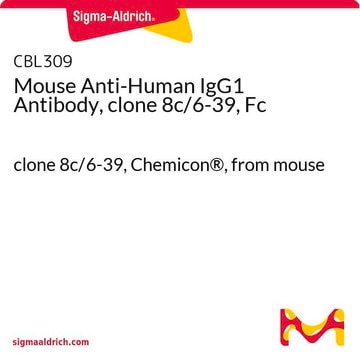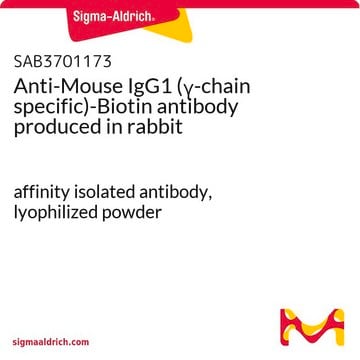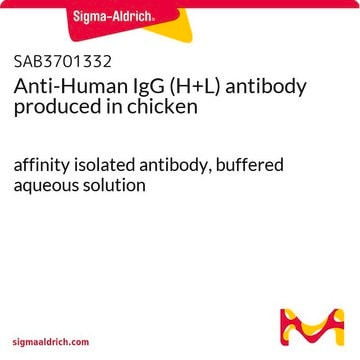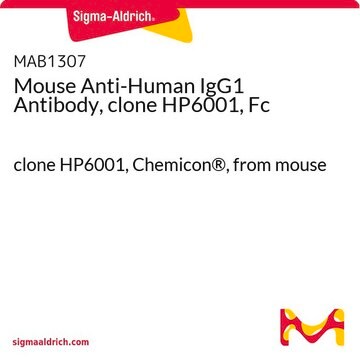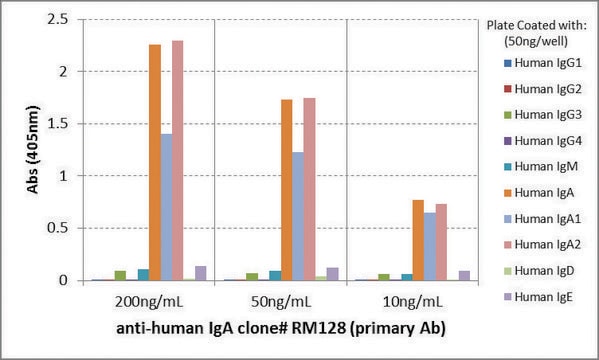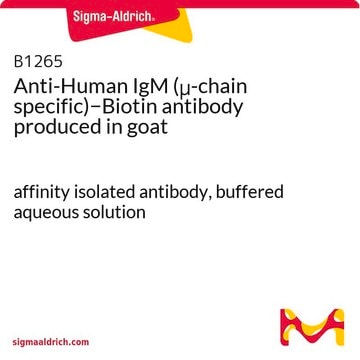B6775
Anti-Human IgG1−Biotin antibody, Mouse monoclonal
clone 8c/6-39, purified from hybridoma cell culture
Sinónimos:
Monoclonal Anti-Human IgG1 (Fc specific), Anti Human IgG1 - Monoclonal Anti-Human IgG1-Biotin antibody produced in mouse, Anti Human Igg1
About This Item
Productos recomendados
biological source
mouse
Quality Level
conjugate
biotin conjugate
antibody form
purified from hybridoma cell culture
antibody product type
secondary antibodies
clone
8c/6-39, monoclonal
form
buffered aqueous solution
technique(s)
direct ELISA: 1:1,000
isotype
IgG2a
shipped in
dry ice
storage temp.
−20°C
target post-translational modification
unmodified
¿Está buscando productos similares? Visita Guía de comparación de productos
General description
Monoclonal Anti-Human IgG1-Biotin antibody is specific for an epitope in the Fc region of the human IgG1. The product does not react with human IgG2, IgG3, or IgG4. This antibody clone (HP6019 clone) has been recognized as a useful human IgG1 specificity standard in the WHO/IUIS study .
Immunogen
Application
Physical form
Disclaimer
¿No encuentra el producto adecuado?
Pruebe nuestro Herramienta de selección de productos.
Storage Class
10 - Combustible liquids
wgk_germany
nwg
flash_point_f
Not applicable
flash_point_c
Not applicable
Elija entre una de las versiones más recientes:
Certificados de análisis (COA)
¿No ve la versión correcta?
Si necesita una versión concreta, puede buscar un certificado específico por el número de lote.
¿Ya tiene este producto?
Encuentre la documentación para los productos que ha comprado recientemente en la Biblioteca de documentos.
Los clientes también vieron
Oligodeoxynucleotide Triggers Formation of Anti-CpG
Antibodies
Nuestro equipo de científicos tiene experiencia en todas las áreas de investigación: Ciencias de la vida, Ciencia de los materiales, Síntesis química, Cromatografía, Analítica y muchas otras.
Póngase en contacto con el Servicio técnico

